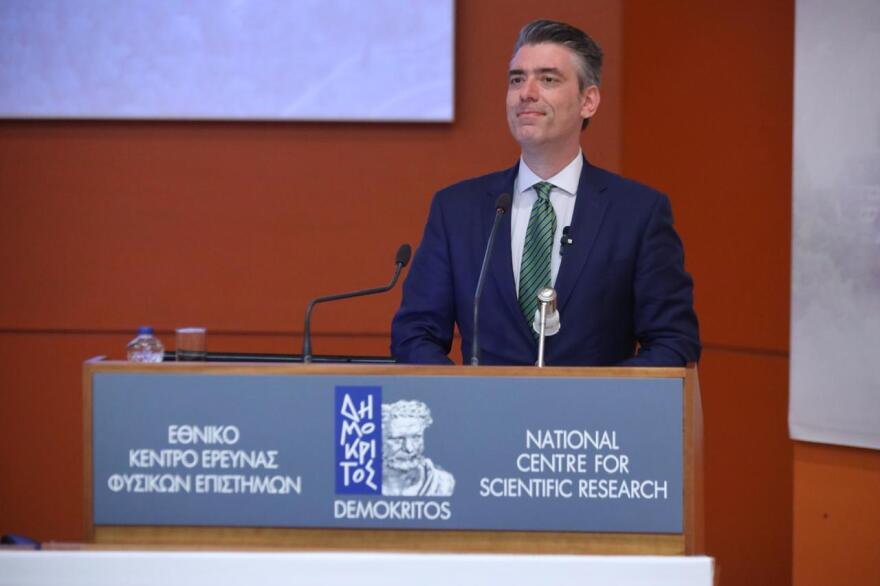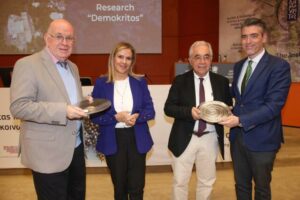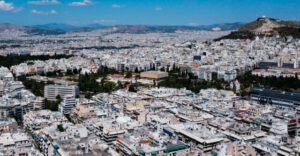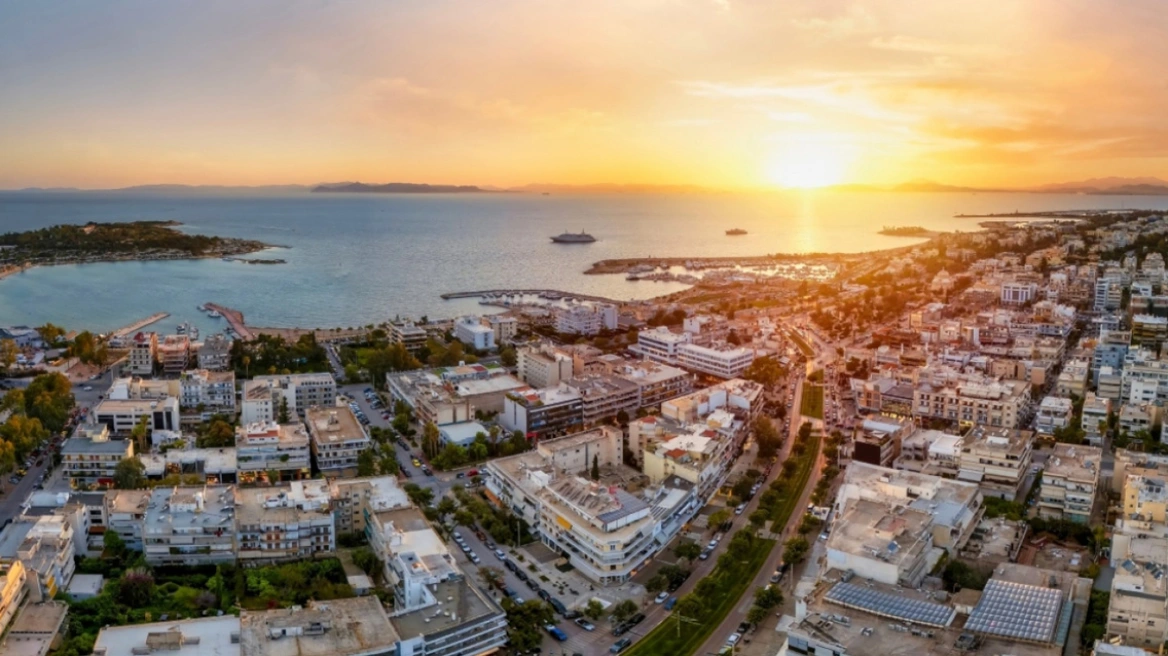An event celebrating the 70th anniversary of CERN and the contribution of our country to its research work was held at the premises of the National Research Center for Nuclear Research and Development “Dimokritos“.
The 70th anniversary of the founding of Europe’s largest nuclear and particle physics research laboratory coincides with the election of Professor Konstantinos Fountas as chairman of the CERN board. This is a special honour for Greece, as he is the first Greek to achieve such a distinction.
The Deputy Minister of State for Research and Innovation, Zoe Rapti, in her speech, stressed: “Greece, as a founding member of the organisation, has been actively involved in this global effort since its inception in 1954, with Greek scientists, researchers and engineers leading some of its most important achievements. ATLAS, CMS, ALICE, CAST, are just a few of the experiments in which teams of researchers from Greek universities and research centers, such as the NCSR “Demokritos”, which is our host today, have participated. At the same time, hundreds of Greeks are already working at CERN, while students and teachers from schools all over the country are visiting its facilities, with a large participation in training seminars and programs of the research center. As Deputy Minister of Development, responsible for research and innovation, I am particularly proud of our country’s contribution to this unique project.”
He added: “the establishment of CERN shortly after the war clearly showed that great challenges are overcome when we work together, when we join forces for a common purpose. In the immediate aftermath of World War II, the diplomacy of science helped keep the peace in Europe for more years than the practice of arms. With the agreement of the European Commission and personally of Ursula Von der Leyen, the feasibility study for the future accelerator, which will be much larger in size and produce great research results, has been funded.
“As Greece we support the creation of this new accelerator and to this end we have submitted a proposal to the upcoming regular cabinet meeting to be held in Brussels on 29/11, to include as an issue the taking of a decision in this regard. We need to focus on radical innovation, as Draghi suggests in his recent report. Our scientists need to find the sources of funding they need here in Europe, and that is what we need to focus on. As political leaders, it is our duty to support and strengthen these partnerships, such as our collaboration at CERN, so that Europe, and therefore Greece, remains at the forefront of scientific production.”
225 Greeks work at CERN
During his speech, the Secretary General for Research and Innovation, Tasos Gaitanis, spoke about the long-standing contribution of our country to CERN, which is one of its founding members and has a significant number of Greek scientists who contribute to its experiments.
As he said, “The participation and contribution of Greek teams is very important, especially in the field of detectors and accelerators. Today, 225 Greeks work at CERN, while 115 Greeks are at CERN with affiliation to Greek universities. As a State and, in particular, as the GGEI, we have been supporting its work over the years. Our country’s annual contributions represent 1% of CERN’s annual budget. Together with the contributions to the experiments in which Greek research groups participate, they amount to 12-13 million Swiss francs per year. This amount is covered by the regular budget of our General Secretariat”.
“CERN has succeeded in becoming a global science hub and in bringing together the research community of the whole of Europe. It promotes research, creates innovation and all this for the benefit of the economy and society. That is why we have supported its work since its inception and will continue to do so. Because we recognise its important and multi-level contribution to science and to the progress of Europe as a whole. And we do not forget this commitment, especially today. That Europe, in order to continue to be competitive in research with the US and China, must take big decisions on the future of CERN and support the plans for the construction of the new accelerator. If some people think that research is a luxury, they are sadly mistaken. It is only through research that societies progress, find solutions to their problems and can create economies with robust growth.”

Finally, CERN’s new President, Konstantinos Fountas, said: “CERN is the world’s leading laboratory in particle physics and attracts the world’s best and most talented physicists and engineers in an effort to advance pure knowledge. As such, CERN is the jewel of European science and gives Europe the leading role in particle physics worldwide. However, CERN is currently at a crossroads to decide its future. Greece has played a key role in this with interventions by the Ministry of Development and the Greek Embassy in Geneva.”
Ask me anything
Explore related questions





